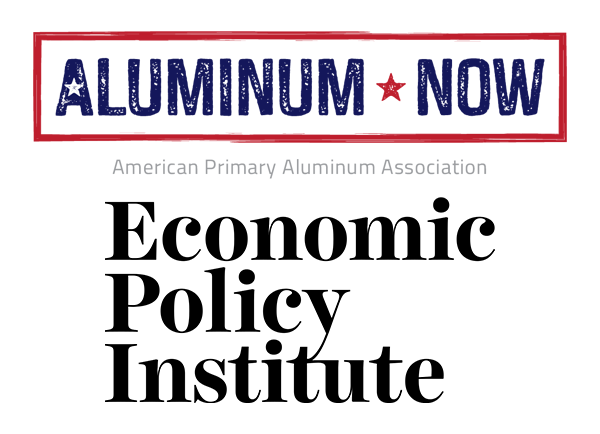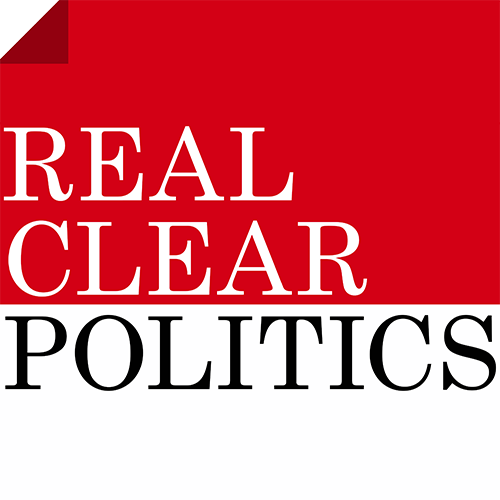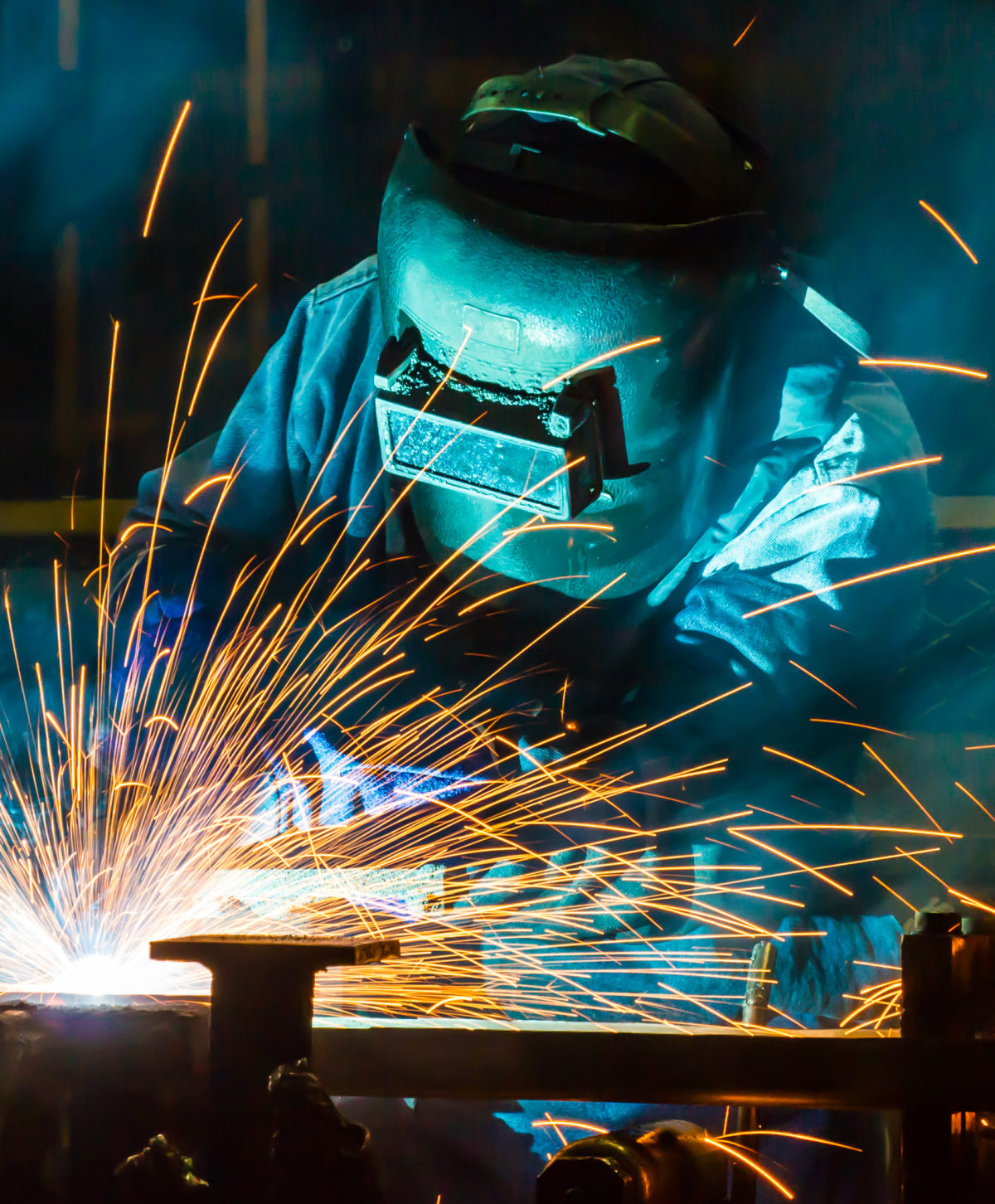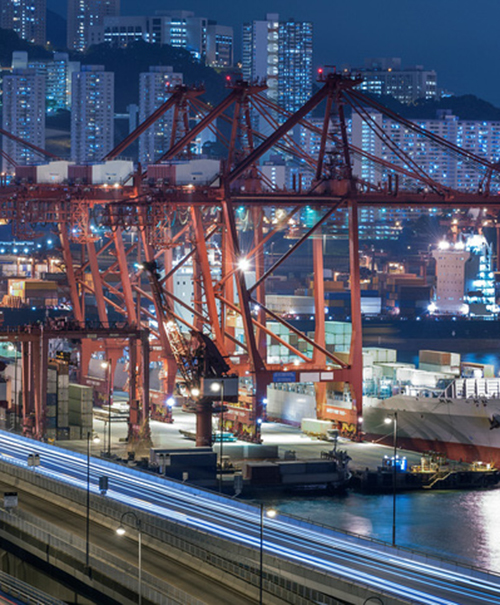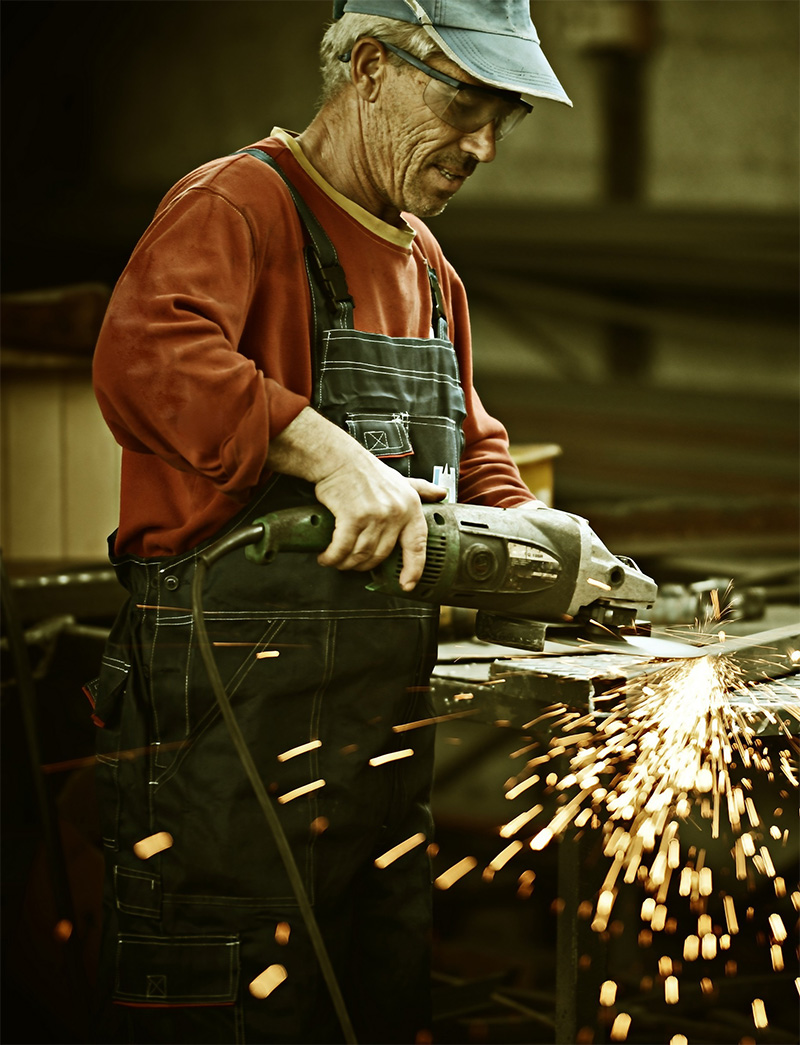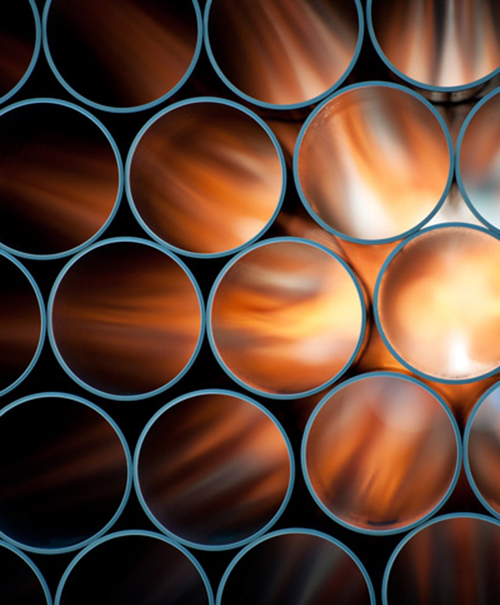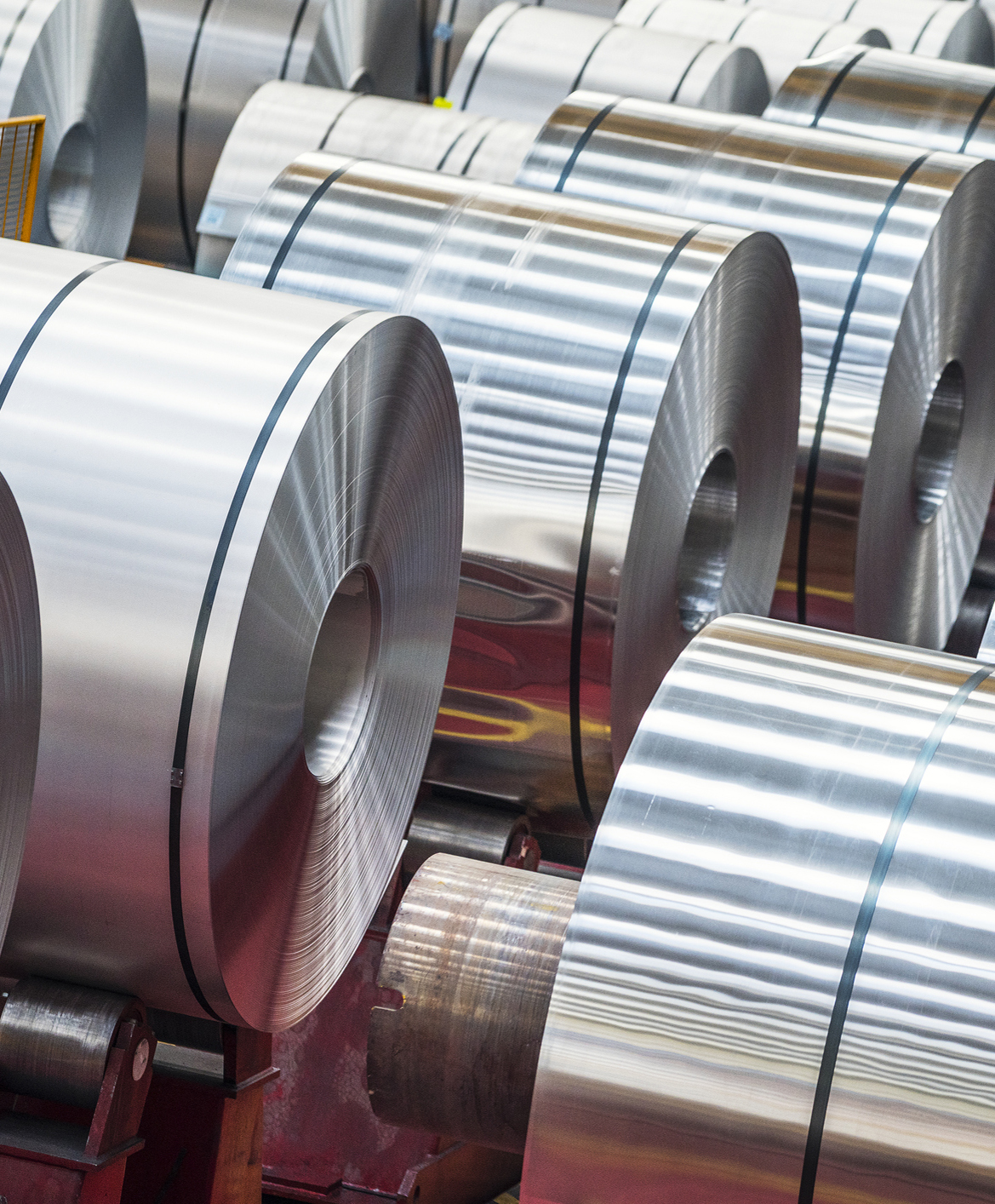Author: Signal Group
Economic Policy Institute Report: Section 232 Tariffs Benefited Aluminum Producers and Consumers
A new report released by the Economic Policy Institute found that the Section 232 Tariff Import Measures helped Aluminum Producers and Consumers thrive, without negative downstream effects on the rest of the economy.
This report makes clear what APAA has been saying for years: the Section 232 Tariffs have helped our economy and improved our national security, and APAA urges the Biden-Harris Administration to keep them in place.
Read the full report here: https://www.epi.org/publication/aluminum-producing-and-consuming-industries-have-thrived-under-u-s-section-232-import-measures/
NEW Economic Policy Institute White Paper Launch on Section 232 Aluminum Tariffs: A Virtual Discussion
WASHINGTON, May 21, 2021 /PRNewswire/ — On Wednesday, May 26, 2021 at 11:00 a.m. ET, Please join Thomas M. Conway, International President of United Steelworkers, Robert E. Scott, Senior Economist and Director of Trade and Manufacturing Policy Research at the Economic Policy Institute, and Jesse Gary, Chairman of the American Primary Aluminum Association for the exclusive launch of the Economic Policy Institute’s new groundbreaking white paper examining the effects of the Section 232 program on the primary aluminum industry and downstream producers and consumers. With President Biden and his team committed to rebuilding American manufacturing, this timely white paper will share unique insights based on the latest economic research as we come together to Build Back Better.
To RSVP, please register here: https://aluminumnow-org.zoom.us/webinar/register/8616207649391/WN_FOQ4-q5LS_i3yC8q82vnvw
Who:
- Thomas M. Conway, International President of United Steelworkers
- Robert E. Scott, Senior Economist and Director of Trade and Manufacturing Policy Research at the Economic Policy Institute
- Jesse Gary, Chairman of the American Primary Aluminum Association
Where:
https://aluminumnow-org.zoom.us/webinar/register/8616207649391/WN_FOQ4-q5LS_i3yC8q82vnvw
Wednesday, May 26, 2021
11:00 a.m. – 12:00 p.m. ET
About the American Primary Aluminum Association:
The American Primary Aluminum Association advances the interests of America’s primary aluminum industry and its workers through the Aluminum Now campaign. APAA is registered and incorporated in Washington, DC and operates as a non-profit trade association. For more, please visit: www.aluminumnow.org
Evan Bayh: “Biden’s Vision: Rebuild Infrastructure, Boost Key U.S. Industries”
President Biden’s American Jobs Plan has the potential to transform our economy as we Build Back Better post-pandemic. In fact, our president has proposed the largest American jobs investment since World War II, which will promote our national security interests and create millions of good-paying manufacturing jobs.
My home state of Indiana has more manufacturing jobs per capita than any other state. So, when rebuilding America’s infrastructure, it is especially important that we ensure U.S. taxpayer-funded projects are constructed with raw materials such as primary aluminum and steel that are made in America.
Having served on Senate Armed Services Committee, I know first-hand just how important infrastructure is to our national defense. It is much harder to defend a nation with crumbling roads, an electrical grid that is totally inadequate for the modern age, and an inability to provide secure high-speed Internet to all Americans. In a modern, vibrant economy, having a first-rate infrastructure is critical to ensuring that America maintains its place as a global leader. In modernizing, however, we cannot be dependent on foreign nations to supply the critical raw materials and components that will be necessary. The experience of the pandemic has taught us that lesson. American-made primary aluminum and high purity aluminum are essential to building our nation’s defense infrastructure, and provide good-paying jobs for thousands of American workers in Indiana and all across America’s heartland.
The Section 232 program that applied a 10% tariff on foreign aluminum imports, saving America’s remaining aluminum smelters from imminent closure, will also allow us to rebuild our infrastructure. With only six surviving smelters, America has the absolute bare minimum primary aluminum capacity to meet critical infrastructure needs in a national emergency. These are the smelters that will produce the aluminum America needs to Build Back Better and to supply the building blocks necessary for a thriving modern economy.
Just a few short years ago, the entire industry was on the verge of closure. Global overcapacity had collapsed prices to the point where every smelter in the United States had announced that it planned to shut down. The Section 232 program put a floor under the industry and is saving the remaining smelters. But the global overcapacity crisis continues to persist. America’s competitors did not substantially reduce their excess capacity after the tariffs were put in place. To the contrary, many producing countries doubled down, providing more subsidies and continued expanding capacity. Other producing regions, such as the European Union, maintained their own long-standing import tariffs on primary aluminum, diverting even more excess global supply to the United States.
Now, just when the U.S. needs its aluminum smelters to rebuild America, the whiskey industry is asking the administration to lift the Section 232 tariffs. Doing so in exchange for reducing similar tariffs on whiskey imports into the EU ignores the fact that the whiskey industry’s U.S. sales increased by over $1.2 billion in just the last four years. The resulting $130 million increase in sales revenue for its exports to Europe is simply not worth the damage it would cause to America’s national security.
When the Section 232 program was initiated, the U.S. aluminum industry was on the verge of collapse. American aluminum jobs and our nation’s national defense were at stake. When it comes to helping Indiana families and rebuilding America’s infrastructure, the benefits of the Section 232 program should never be undone to boost the short-term profits of a special interest group that is thriving, while tens of thousands of American manufacturing workers and their families will undoubtedly feel the pain.
As my friend President Biden remarked in Pittsburgh, “Wall Street didn’t build this country; the great middle class built this country. And unions built the middle class.” We need to create millions more, not less, good-paying union manufacturing jobs in Indiana and across this great nation, like those in the primary aluminum industry.
While our country begins to recover from the pandemic, our trade policies should seek to create and protect American manufacturing jobs. The Section 232 program is saving a vital industry that is critical to the nation’s supply chain, but more needs to be done. President Biden’s once-in-a generation investment in America will help to do more for America’s critical industries such as aluminum by rebuilding U.S. infrastructure, supporting domestic manufacturing jobs and strengthening U.S. supply chains as we work together to Build Back Better.
Bakari Sellers: “Mr. President, Don’t Forget Black Manufacturing Workers”
With the end of Donald Trump’s impeachment trial, all Americans must embrace President Biden’s efforts to rebuild our great nation. As he prepares to address a CNN town-hall gathering in Milwaukee, we can expect our president to renew his focus on passing the $1.9 trillion COVID-19 relief package to help millions of American families and strengthen our middle class.
As the nation continues to navigate the economic uncertainty of the pandemic, I believe that the administration’s Build Back Better program has the immediate potential to revive local economies and keep good-paying manufacturing jobs right where they belong – at home in the United States. At the same time, we must also address racial inequity as we restore the soul of America.
Middle-class jobs are tough to come by, especially for minorities in my home state of South Carolina and across the nation. As a former legislator, we had many great manufacturing facilities in my district. Century Aluminum – America’s largest aluminum producer – pumped over $500 million in indirect revenue and 300 good-paying jobs into our state economy, and a vast majority of the employees are Black. While some might overlook this racial dynamic, it is exceedingly common in manufacturing communities throughout the South and Midwest. The plant in Mount Holly also recently announced that it will be increasing total production by 25%, adding 70 more jobs to its economic footprint.
The U.S. aluminum industry has been decimated lately by a surge of foreign aluminum imports from Russia, India, and the Middle East. The Obama administration filed a case at the World Trade Organization to prevent aluminum workers from losing their jobs due to the massive amount of subsidized foreign capacity distorting global aluminum prices. The Trump administration launched the Section 232 tariff program acknowledging the threat to national security posed by America’s declining aluminum industry and attempted to offset the effects of depressed pricing.
In the final hours of his administration, Trump exempted the United Arab Emirates from 10% tariffs on their aluminum imports. The UAE is home to the Jebel Ali high-purity aluminum smelter, which produces an essential component for U.S. military equipment. But high-purity aluminum is made right here in the USA!
Trump’s action hurts minority workers and families across the South as heavily subsidized state-owned entities in the Middle East that rely on cheap migrant workers game the system.
Thankfully, in recent days our new president stepped in and revoked Trump’s sell-out of minority communities working in America’s aluminum industry. President Biden made clear that he considers it “necessary and appropriate in light of our national security interests to maintain, at this time, the tariff treatment applied to aluminum article imports from the United Arab Emirates.” This action indicates that his administration will fight to create and protect American jobs for minority communities.
It is imperative that the Biden-Harris administration continues to protect American manufacturing jobs. Moreover, we must prioritize the industries at home rather than allow subsidized foreign aluminum imports to flood U.S. markets and shatter local economies.
Whether aluminum, steel or other essential U.S. industries, these good-paying manufacturing jobs are vital pathways to the middle class for Blacks in South Carolina and across the country. Black voters in my state were critical in helping Biden clinch the Democratic nomination and become the next president, so it is only right for Black communities that have suffered considerably to be at the center of the economic recovery efforts.
As we get ready to hear President Biden address the American people at his first town-hall Tuesday evening, I am hopeful that he will work to unite and redeem the soul of our nation. But redemption must start with protecting and preserving good-paying middle-class manufacturing jobs. It starts by protecting Black workers through equitable Building Back Better policies and promoting an inclusive economy where we all can contribute and thrive.
APAA Calls on President Trump to Restore Tariffs on Surging Canadian Aluminum Imports
Yesterday, the American Primary Aluminum Association (APAA) sent a letter to President Trump calling on the Administration to restore America’s core manufacturing capabilities and bring back critical supply chains by restoring a 10% tariff on imports of Canadian primary aluminum that are surging into the United States.
Since the 10% aluminum tariff on Canadian imports was removed last year, we have seen Prime Minister Trudeau’s government announce new subsidies for the Canadian aluminum industry, the restart of Canadian production, and skyrocketing imports of Canadian primary aluminum – by over 80% in the last year alone – despite an agreement that the Canadians would do no such thing.
According to just released U.S. Census data, 184,789 metric tons of HTS 7601.10 came in from Canada in May 2020, a record high since Canada was granted its exemption to the Section 232 program. Canada is now at the highest level of import volume since the Section 232 program went into place – more than 30 percent higher than its historical average.
“Industry groups dominated by foreign producers want the Trump Administration to believe that the problem lies only with China. Yet, some of these same entities are currently petitioning the U.S. Commerce Department to impose import duties of up to 151% against 18 other countries on downstream aluminum products these groups produce,” said Mark Duffy, Chief Executive Officer of the APAA. “Now is the time to put America First and for President Trump to enforce our trade agreements, stop this unprecedented Canadian import surge, and stand strong with American workers by reinstating the 10% tariff on Canadian imports.”
While foreign-backed interest groups wrongly hide behind the flag, the APAA is supporting the entire domestic supply chain and fighting for the best interests of America and the domestic primary aluminum industry.
APAA Calls on Ambassador Lighthizer to Restore Tariffs on Surging Canadian Aluminum Imports
APAA Letter – The Honorable Robert E. Lighthizer U.S. Trade Representative
Yesterday, the American Primary Aluminum Association (APAA) delivered a letter to U.S. Trade Representative Robert Lighthizer and Secretary Wilbur Ross providing important data to bring awareness to the surge of Canadian aluminum imports to the United States that is threatening the viability of the domestic primary aluminum industry.
In the letter, the APAA calls on the Trump Administration to save the American primary aluminum industry by repealing Canada’s exemption to the Section 232 tariffs that occurred one-year ago in May 2019. The agreement between the U.S. and Canada that waived the tariffs expressly provides for this surge remedy. Preserving the U.S. primary aluminum industry, including the production of military-grade primary aluminum, was one of the principal drivers of the Section 232 investigation and the resulting tariffs.
“While Canadian producers want the windfall of avoiding Section 232 duties, the Canadian surge is destroying what remains of the U.S. industry,” remarked Mark Duffy, Chief Executive Officer of the APAA. “One U.S. smelter in Washington state is slated to be shuttered and another in Indiana is under strategic review. The New Madrid smelter in Missouri has warned that they are at imminent risk of shut down unless the Canadian surge is addressed. We urge the Administration to reimpose the 10% tariff on aluminum imports from Canada to save American aluminum jobs.”
The letter goes on to explain that if U.S. smelters continue to shutter, the U.S. will only become more dependent on offshore primary aluminum supply. This situation will increase supply chain vulnerability at the very time the U.S. is seeking to preserve a threshold level of production at home.
Dems Must Embrace ‘America First’ Trade Policy to Win in Fall
The COVID-19 pandemic is disrupting almost every component of daily life in the United States, with more and more Americans coming to terms with what the “new normal” will look like. Yet, despite the tremendous shock waves with more than 90,000 dead and millions unemployed, our politics is regrettably more polarized than ever. Fortunately, there is an issue on which Joe Biden and Donald Trump can find common ground by standing with American manufacturing workers who are essential to a strong national economy and vibrant middle class.
As a governor and senator representing Indiana for many years, I’m the first to admit that policies hurting Indiana workers are deeply personal to me. The Hoosier State has more manufacturing employment per capita than any other. These issues also run in my family. In 1980, my father, also a U.S. senator, made his final campaign stop at the Alcoa smelter in Warrick County, Indiana. Recently, the smelter fell into dire straits as illegal, subsidized foreign aluminum surged into the United States, forcing the location to be shuttered.
However, under the Section 232 aluminum program, which gives the president authority to impose tariffs on aluminum and steel imports, the plant was successfully restarted in 2018, bringing back more than 600 great Indiana workers with good jobs that support their families and the local community.
Unfortunately, those 600 jobs are once again threatened. The Canadian government, holding the United States-Mexico-Canada Agreement hostage, lobbied Congress and the administration to lift the Section 232 aluminum tariffs in exchange for Canada agreeing not to surge aluminum exports.
But Canada has not honored its commitment, and aluminum imports from Canada once again are surging into the United States.
Regrettably, in recent days, this surge caused 700 American aluminum workers to lose their jobs in Washington state. While American aluminum workers are feeling the pain, these jobs are being outsourced to Canada, where a Canadian smelter was restarted after the government there provided subsidies to its industry in response to the Section 232 tariffs. Once again, it was announced that the Warrick County, Indiana smelter is up for “strategic review” and possible closure as well.
While I support a rules-based trading system, this only works if those standards are enforced. The Canadian government agreed that if their producers surged imports into the United States, undermining the relief, the tariffs could be re-imposed. Objectively, the current Canadian surge is in violation of that commitment. The Democratic Party has supported a rules-based trading system for decades now, and we hope that Republicans and the Trump administration will too. We must be willing to enforce those rules, if we are going to ensure that our trading partners live up to the commitments that they agreed to. Canada made a commitment; we must now ensure that they live up to that pledge.
My tenure on the Senate Armed Services and Intelligence committees helped me understand the importance of protecting domestic U.S. supply chains, strengthening the defense industrial base, and putting national security at the heart of U.S. policymaking. Primary aluminum production is essential to U.S. supply chains and plays a very critical part to our national security infrastructure. The current pandemic reminds us that maintaining a healthy domestic supply chain to keep essential industries running is crucial to our national well-being.
To protect American manufacturing workers in Indiana and to put economic and national security first, we must restore a broad-based 10% tariff on all imports of aluminum, including from Canada, and reduce exemptions. This is a very simple and easy policy fix that only requires our trading partners to live up to their commitments.
My message is simple: The elections this fall will be close and probably be decided by middle-class workers who feel fed up with both Washington and foreign nations that break the rules at our expense. Both presidential candidates and both parties have a strong interest in leveling the playing field for manufacturing.
I am confident our next president and our next majority party in the Senate will succeed by standing with manufacturing workers in critical swing states and standing up for American aluminum workers in Indiana and elsewhere across our great nation.
I have no doubt that we can ultimately prevail against the global pandemic and the economic destruction it is causing. To do so, we will need leaders – Joe Biden, Donald Trump, Republicans, Democrats – with the courage and strength to insist on a good deal for American manufacturing.
Evan Bayh served as a U.S. senator from Indiana from 1999 to 2011 and as the 46th governor of Indiana from 1989 to 1997.
Mike Huckabee: Globalist Democrats decimate America’s aluminum jobs
The COVID-19 pandemic continues to upend American life, sending ripple effects across the country and throughout the economy. With the announcement that 30 million Americans are filing for unemployment, times are tough for hardworking American families.
It is no secret that the exceptionalism of American manufacturing has been on the decline as past administrations prioritized globalization over the well-being of hardworking American families. President Trump knows it, and he and his team are fighting every day to create and keep more manufacturing jobs in the United States. And during the pandemic, Americans have learned that when we depend on foreign countries like China to make our drugs, protective health gear and even our toilet paper we get “wiped out.”
It is shocking to see congressional Democrats led by Nancy Pelosi support unfair trade policies that hurt American workers. In recent days, 700 American manufacturing workers lost their jobs in Washington state due to an unprecedented surge of aluminum from Canada. The great outrage is when media goons team up with their soulmates on the left to accuse those who support America First policies of racism and xenophobia. When an American worker loses his or her job to “America Last” policies of the left, those jobs are lost by men, women, black, brown, white. Their ability to put food on their family’s table has been decimated.
The globalist Democrats led by Rep. Suzan DelBene, Washington Democrat, caved to a massive lobbying effort by the Canadian government and its aluminum producers to proactively push for a tariff exemption for Canadian aluminum imports into the United States. The Canadian government worked with the globalist Democrats to tie the lifting of aluminum tariffs to passage of U.S.-Mexico-Canada Agreement (USMCA). As a result of these actions by the globalist Democrats in Congress, 700 workers in Mrs. DelBene’s district are now out of work and thousands of more jobs are on the line. One wonders what country’s Congress does she work for?
While the Canadian government was busy lobbying congressional Democrats to lift the tariffs, the Canadian government stuffed its aluminum industry with subsidies that support projects at smelters valued over $550 million (Canadian). These subsidies also helped another Quebec smelter, which was idled, to restart its production just as the tariffs were lifted against Canada.
The lifting of the tariffs and the Canadian subsidies effectively outsourced the 700 jobs in Washington state to Quebec. Since the announcement of these subsidies, Canadian aluminum imports have surged over 70 percent, threatening thousands of American aluminum jobs in southern Missouri, New York, Kentucky and South Carolina.
President Trump showed tremendous leadership by imposing 10 percent tariffs on all foreign aluminum imports to protect us from countries that cheat. Sadly, the Canadian government worked with the globalist Democrats in Congress to exempt Canada from Mr. Trump’s Section 232 tariff program. Canada insisted that it would not surge its production beyond historic norms. Instead, Canada stuffed their aluminum industry with massive additional subsidies and surged volume far above historic norms in violation of their commitments. So much for “fair trade.”
Letter to Acting Commissioner Morgan: Concerns Regarding Tariff Relief for Importers Who Break Trading Rules
Dear Acting Commissioner Morgan:
On behalf of the American Primary Aluminum Association (APAA), I am writing to express our concerns and urge U.S. Customs and Border Patrol (CBP) to oppose efforts to grant relief to importers in the form of duty payment extensions and other flexibility mechanisms to defer or avoid payments. As of today, we understand that CBP will approve on a case by case basis additional days for payment of estimated duties, taxes and fees due to the coronavirus. When it comes to the Section 232 program, such actions will allow importers to game the system, result in import surges and pose a clear and present danger to U.S. economic and national security interests.
On behalf of America’s primary aluminum producers, we urge CPB not to implement policies that will undermine the Section 232 tariff program and harm American aluminum workers. We ask CBP to continue to fully implement President Trump’s Presidential Proclamation imposed under Section 232 of the Trade Expansion Act of 1962 on certain articles of aluminum and steel.
The APAA understands and recognizes that the coronavirus public health crisis is resulting in significant economic disruption and Congress is taking steps to protect vulnerable industries and unemployed workers. When it comes to American primary aluminum industry, any relief for importers will hurt domestic primary aluminum production and potentially threaten thousands of American aluminum jobs. Any “tax holiday” or relief will decimate the American aluminum industry which these tariffs are designed to save and support.
The Section 232 aluminum tariff program has been, and will continue to be, a lifeline for the domestic aluminum industry against foreign producers that do not operate on market principles. The minimal tariff imposed on foreign imports provides important relief for domestic production, and as a result of the current fragility of global supply chains, the United States cannot afford to allow important industries to be undermined by a government sanctioned 90-day tariff relief program. USTR has already put in place a process to deal with emergency regulations that have direct bearing on our nation’s ability to respond to the coronavirus crisis
We urge you to resist against implementing policies that undermine the Section 232 program, which is critically important for U.S. national security purposes and has allowed our America’s aluminum industry to start rebuilding.
Any tariff relief will have devastating consequences for the American industries these tariffs were designed to save and support. We strongly urge CBP not to consider the 90-day tariff relief and stand strong with America’s primary aluminum industry and American workers.
Sincerely,
Mark Duffy
Chief Executive Officer
American Primary Aluminum Association


